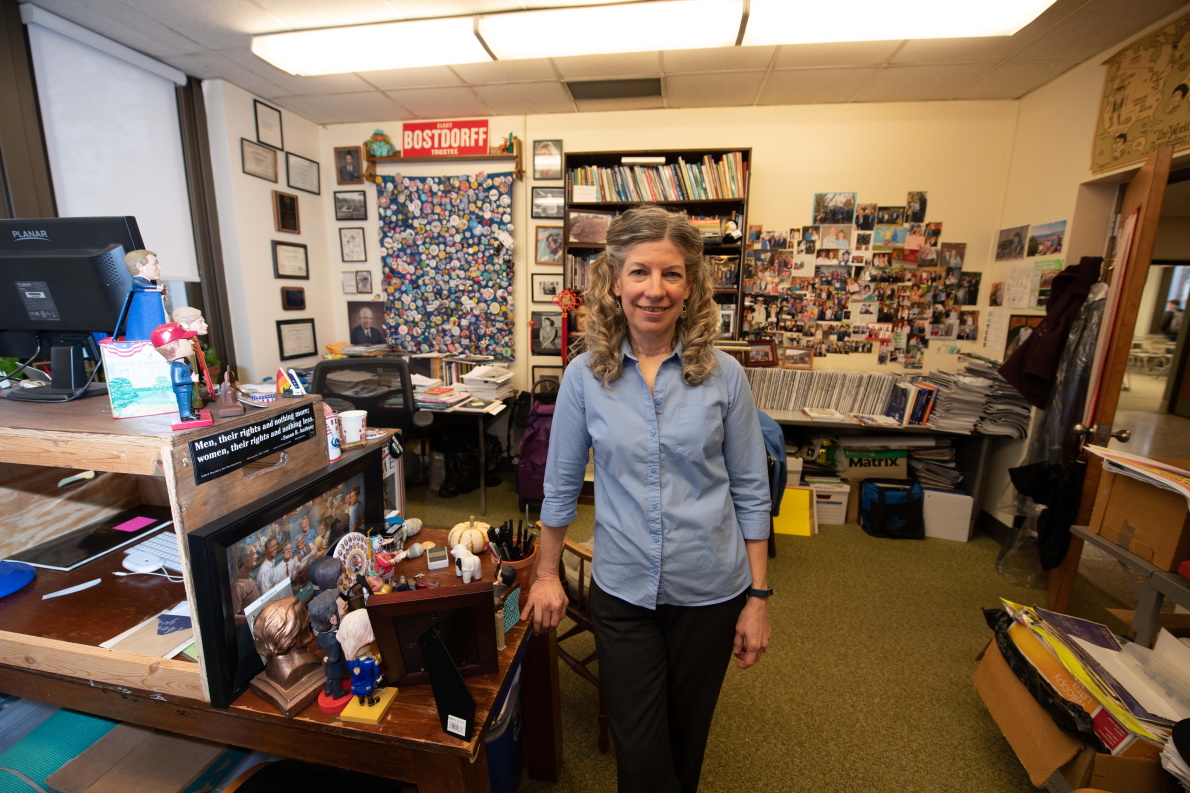
Denise Bostdorff discusses journal reviewing on podcast

Denise Bostdorff, professor and chair of communication studies at The College of Wooster, appeared on an episode of the National Communication Association’s podcast, Communication Matters, which regularly covers topics “relevant to communication scholars, teachers, and practitioners.” The May 20 episode, “Journal Reviewing as Mentorship,” featured a discussion about the academic journal review process and issues in accessibility to young scholars and scholars from historically underrepresented backgrounds. To be included in a journal, Bostdorff explained that authors submit their work to an anonymous review process where neither the author nor reviewer knows the other’s identity, “so the process focuses on the work itself.” However, she said that reviewers are not always helpful, sometimes providing “snarky” responses and little constructive feedback. “This is one of the reasons that NCA wants to encourage the idea of journal reviewing as mentorship,” Bostdorff said.
Having been a peer reviewer of communication studies scholarship for 35 years, Bostdorff was able to give advice to young scholars interested in becoming reviewers. “Young scholars should express their interest to their mentors and see what ways they can help,” she said on the podcast. “Mid-level and senior faculty can recommend these scholars to editors, so editors are aware.” Bostdorff put this into practice, having regularly recommended young Wooster faculty who would be good reviewers given their area of expertise to editors. She also recommended “presenting and publishing your own work” so that editors will recognize young scholars as an expert on a topic and thus easier to identify as a future reviewer.
Bostdorff added that working as a peer reviewer has given her a greater understanding of the process. “I think far more carefully about the audience of a particular journal in deciding whether to submit a specific essay,” she said. “I also learned to write a letter to reviewers when revising work to explain how I have or have not addressed their critiques.” This related to some of the best advice Bostdorff received as a young scholar, which she explained on the podcast. “I did not realize that I could choose not to do something that the reviewer said and just explain why I made that choice,” she said.
Having served on the editorial board of the NCA’s Quarterly Journal of Speech since 2013, as well as serving on six other editorial boards, Bostdorff learned some of the best practices of how to be a mentor to an author during the review process. “At their best, reviewers should be mentors who help their authors see their work from new perspectives,” she said. “The most satisfying part of the process is seeing the publication of an essay or book knowing that I helped the author fulfill the potential of their work.”
Posted in Faculty, News on May 26, 2021.
Related Posts
Related Areas of Study
Communication Studies
Be an effective listener, writer, and speaker who can think critically and connect with audiences
Major Minor

